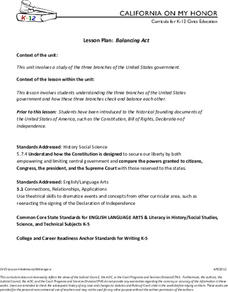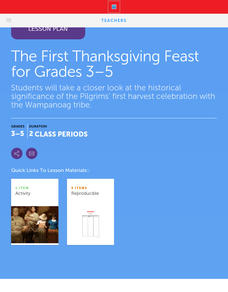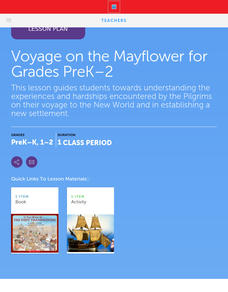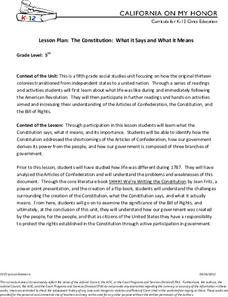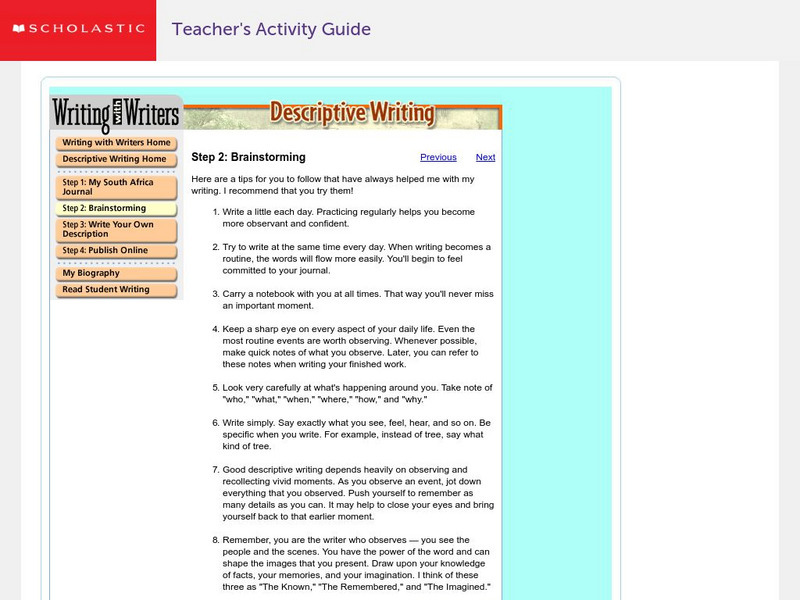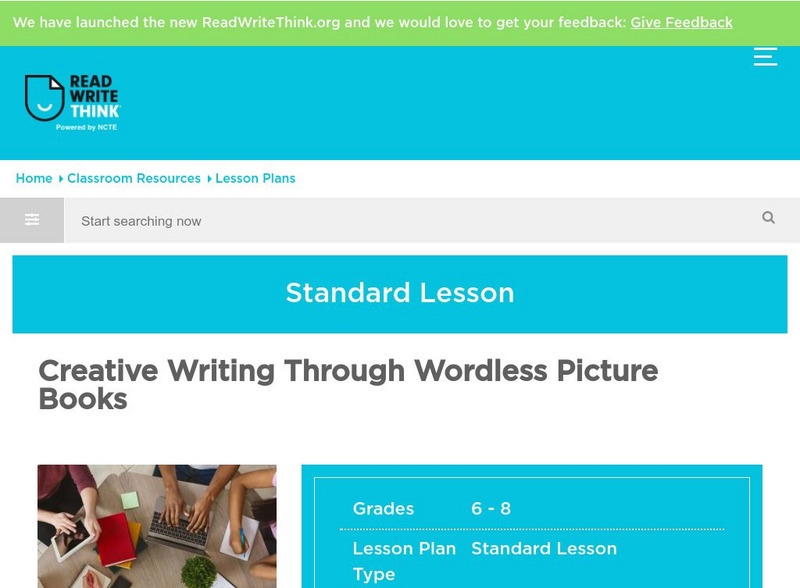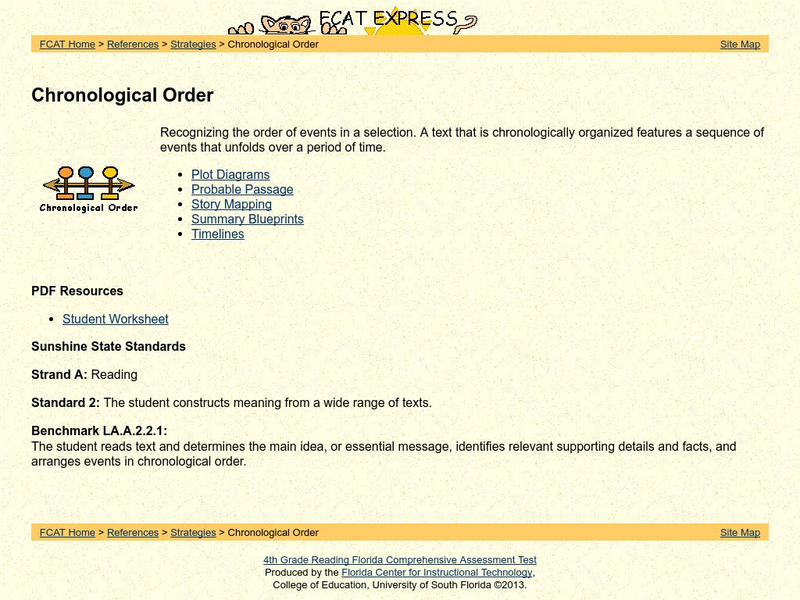Judicial Branch of California
Balancing Act: The Three Branches
What do hula hoops and the American system of government have in common? Using hands-on station activities, pupils consider the roles of the three branches of government. A script for teachers and writing prompts help round out a...
Scholastic
Pilgrim and Wampanoag Daily Life for Grades 6–8
Two slide shows, viewed side-by-side, permit middle schoolers to compare and contrast the lives of the Pilgrims of the Plimoth colony and the Wampanoags. Four videos take learners on virtual field trips to the Plymouth plantation. And an...
Scholastic
Voyage on the Mayflower for Grades 3-5
Following an online activity, scholars complete a Grafitti Wall in which small groups write words and phrases on chart paper pertaining to Pilgrims, the Mayflower, and Thanksgiving. Pupils perform a close reading then answer a series of...
Scholastic
The First Thanksgiving Feast for Grades 3-5
Scholars examine the first Thanksgiving through books and interviews while they complete a KWL chart. Pretending they are part of the feast, learners craft a scrapbook page that features images related to their experience. Pupils reflect...
Scholastic
Voyage on the Mayflower for Grades 6–8
Imagine living in the hold of a sailing ship for 63 days, enduring rough seas and autumn storms. As part of a study of the voyage of the Mayflower, class members examine an online resource that details life about the ship, watch a slide...
Teaching Tolerance
In Our Own Words: A Story Book with a Purpose
Academics turn into storytellers in an engaging activity on activism. The activity focuses on promoting social change in local communities with stories. Young historians plan a storybook to target a specific audience and social issue and...
Learning for Justice
Change Agents in Our Own Lives
Everyone has the power to change their own lives. Young historians learn how they can become agents for change in their own lives and the community. The lesson focuses on positive role models and what motivates individuals to promote...
Scholastic
Voyage on the Mayflower
After completing an online activity about the Mayflower, scholars draw a picture about what they know of the Thanksgiving holiday, including a one-sentence summary. A reading of If You Were at the First Thanksgiving by Anne Kamma is...
Scholastic
Pilgrim and Wampanoag Daily Life
A lesson looks at the Pilgrims and Wampanoag tribe during the first Thanksgiving. Scholars compare and contrast information presented by an online activity then discuss their findings. Learners examine the two group's daily routines and...
Scholastic
The First Thanksgiving Feast
Following an online activity, scholars listen to a read-aloud of If You Were at the First Thanksgiving by Anne Kamma. Pupils discuss their family traditions and complete a T-chart comparing the holiday then and now. Collages are made to...
Judicial Branch of California
The Constitution: What It Says and What It Means
Learners get the chance to act as representatives to the Constitution Convention, and must decide whether or not to recommend your state ratify the new framework. After examining the Constitution line-by-line, they consider their...
SUNY Empire State College
Empire State College: Shaping Information: Ordering Information and Outlining
Discusses finding a logical order for the ideas you wish to present in your essay. Uses samples to show how changing the position of the topic sentence changes the emphasis. Briefly touches on transitions. Then discusses the outline as...
Scholastic
Scholastic: Writing With Writers: Descriptive Writing
Need help with doing a descriptive paper or personal narrative? Need a writing lesson plan? Meet Virginia Hamilton and follow her step-by-step guide to writing. When done, you are eligible for a certificate signed by this author.
ReadWriteThink
Read Write Think: Creative Writing Through Wordless Picture Books
Need help planning ways to creatively teach your students chronological order? Here's a great place to start. While the site is specifically geared toward the middle school student, it is a teaching idea which could easily be adapted for...
ReadWriteThink
Read Write Think: Expository Escapade: Detective's Handbook
Working on higher-level thinking skills with your readers is made easier with this lesson. You will have your young scholars connect with and analyze a mystery story at their grade-appropriate level. Lesson plan, printable worksheets,...
ReadWriteThink
Read Write Think: Playing With Genre Through Newspapers and Short Stories
Contains plans for three lessons that ask students to compare narrative writing (short stories) to expository writing (news articles) in order to understand what makes each genre unique. In addition to objectives and standards, this...
Other
Reading Quest: Strategies for Reading Comp.: History Frames: Story Maps
This activity will help you teach learners chronological order as well as identifying key people and events. Printable worksheets.
Daily Teaching Tools
Daily Teaching Tools: Flow Charts for Sequencing
This Daily Teaching Tools resource provides a graphic organizer. Students will be able to write a sequence of events more efficiently by using this tool.
University of South Florida
Fcat Express: Chronological Order
Strategies to help students recognize the order of events in a selection provided by a standardized test preparation site intended for fourth grade. Includes strategies such as plot diagrams, probable passages, story mapping, summary...
ReadWriteThink
Read Write Think: Draw a Story: Stepping From Pictures to Writing
Help young students move from drawing pictures into writing simple stories. Good plan for having students put pictures in sequential order and teaching them about sequential order.
PBS
Pbs Teachers: Story Writing With Arthur
This series of 12 downloadable activities teach students some basics of story writing, using books or videos from the PBS "Arthur" series as a springboard. Activities include creating story maps, asking questions about characters and...
Georgia Department of Education
Ga Virtual Learning: Ninth Lit and Composition: Types of Writing Instruction
This lesson focuses on the four types of writing: narrative, descriptive, expository, and persuasive including definition and characteristics of each and an interactive activity over they types. It also provides links to more information...
Georgia Department of Education
Ga Virtual Learning:ninth Grade Lit and Comp: Introduction to Personal Narrative
This lesson is an introduction to a unit on personal narratives including the characteristics of a personal narrative: tells a story, events are in chronological order, and it has characters, setting, and plot. Click next at the bottom...
Sophia Learning
Sophia: Editing Techniques: Writing a Reverse Outline
This slideshow lesson focuses on writing a reverse outline as a post writing strategy for assessing your paper for weak or missing aspects. It explains how to create the outline using a rubric if available and provides a skeletal example...


